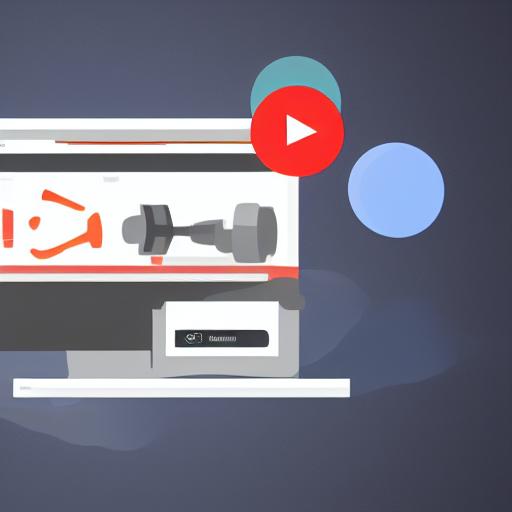
Choosing the right e-commerce platform is crucial for the success of your online business. With so many options available, navigating the landscape can feel overwhelming. This comprehensive guide compares 12 of the best e-commerce platforms, helping you determine which one aligns perfectly with your specific needs, budget, and long-term goals. We’ll explore features, pricing, scalability, and more, ensuring you make an informed decision.
What is an E-commerce Platform?
An e-commerce platform is the software that powers your online store. It handles everything from product listings and order processing to payment gateways and customer management. Choosing the right platform is essential for a smooth, efficient, and profitable online business. The “best” platform depends entirely on your unique business requirements.
Why is Choosing the Right Platform Important?
Selecting the wrong platform can lead to several issues:
- Limited Scalability: As your business grows, your platform may struggle to handle increased traffic and orders.
- High Costs: Hidden fees and limitations can significantly impact your profitability.
- Poor User Experience: A clunky platform can deter customers and damage your brand reputation.
- Lack of Features: A platform missing essential features can hinder your business operations.
This guide aims to prevent these problems by providing a detailed comparison of leading e-commerce platforms.
12 E-commerce Platforms Compared:
We’ll analyze the following platforms, considering factors like ease of use, pricing, features, scalability, and customer support:
- Shopify: A popular choice for its ease of use and extensive app ecosystem.
- BigCommerce: Known for its robust features and scalability, ideal for larger businesses.
- Magento (Adobe Commerce): A highly customizable and powerful platform, best suited for complex businesses.
- WooCommerce: A WordPress plugin that turns your WordPress site into an e-commerce store.
- Squarespace: A user-friendly platform with a focus on design and aesthetics.
- Wix: Similar to Squarespace, offering drag-and-drop functionality and intuitive design tools.
- Shopware: A flexible and open-source platform with strong SEO capabilities.
- PrestaShop: Another open-source option, offering a high degree of customization.
- Ecwid: A versatile platform that can be integrated into various websites and social media channels.
- 3dcart: A feature-rich platform with a focus on providing all the tools you need for success.
- Zyro: A beginner-friendly platform with affordable pricing and easy-to-use tools.
- Squarespace Commerce: Squarespace’s dedicated e-commerce offering, integrating seamlessly with their website builder.
Differences between the 12 e-commerce platforms:
| Platform | Key Features | Best For | Customization | Ease of Use | Price (Approx.) |
|---|---|---|---|---|---|
| Shopify | Extensive app ecosystem, ease of use, built-in hosting | Small to medium businesses | Moderate | High | $29–$299/month |
| BigCommerce | Scalable features, multi-channel selling, no transaction fees | Larger businesses | Moderate | High | $29.95–$299.95/month |
| Magento (Adobe Commerce) | Highly customizable, powerful for complex requirements | Enterprise-level businesses | High | Low | Custom pricing |
| WooCommerce | WordPress plugin, open-source, extensive themes/plugins | WordPress users | High | Moderate | Free (Add-ons vary) |
| Squarespace | Stunning templates, all-in-one solution | Creative professionals | Low | High | $23–$65/month |
| Wix | Drag-and-drop editor, intuitive design tools | Beginners, small businesses | Low | High | $27–$59/month |
| Shopware | SEO-friendly, open-source, scalable | Growing businesses | High | Moderate | Custom pricing |
| PrestaShop | Open-source, highly customizable | Developers, international sellers | High | Moderate | Free (Hosting extra) |
| Ecwid | Integration with existing websites, social media selling | Multi-channel sellers | Low | High | Free–$99/month |
| 3dcart | Built-in features, focus on selling tools | Comprehensive e-commerce needs | Moderate | Moderate | $29–$229/month |
| Zyro | Affordable pricing, beginner-friendly | Startups, small stores | Low | High | $11.99–$39.99/month |
| Squarespace Commerce | Seamless e-commerce with Squarespace builder | Creatives needing e-commerce | Low | High | $27–$49/month |
Choosing the Right Platform: A Step-by-Step Guide
Define Your Business Needs: What are your current and future e-commerce goals? How many products will you sell? What level of customization do you require? What’s your budget? Answering these questions is the foundation of your decision.
Assess Your Technical Skills: Are you comfortable with coding and website development, or do you prefer a user-friendly, drag-and-drop interface? This will heavily influence your platform choice.
Consider Scalability: Can the platform handle your projected growth? Will you need to upgrade as your business expands? Scalability is crucial for long-term success.
Evaluate Pricing and Fees: Compare the monthly/annual fees, transaction fees, and any hidden costs. Factor these into your overall budget.
Explore Features and Integrations: Do you need specific features like inventory management, marketing tools, or payment gateway integrations? Ensure the platform offers the necessary functionalities.
Review Customer Support: What kind of support does the platform offer? Is it responsive and helpful? Reliable support is vital, especially when encountering technical issues.
Test the Platform: Many platforms offer free trials. Take advantage of these to test the platform’s features and user interface before committing.
Example: Comparing Shopify and WooCommerce
Let’s compare two popular platforms:
Shopify: Easy to use, vast app store, excellent customer support, but monthly fees can be significant. Ideal for beginners and businesses that prioritize ease of use over deep customization.
WooCommerce: Highly customizable, open-source and free (excluding hosting and themes), but requires more technical expertise. Best suited for users comfortable with WordPress and those seeking complete control over their store’s functionality.
When to Consider Each Platform Type:
- For Beginners: Shopify, Squarespace, Wix, Zyro
- For Businesses Seeking Scalability: BigCommerce, Magento
- For Tech-Savvy Users: WooCommerce, PrestaShop, Shopware
- For Businesses on a Budget: WooCommerce (with affordable hosting), Zyro, Ecwid
- For Businesses Prioritizing Design: Squarespace, Wix
SEO Optimization for Your E-commerce Store
Regardless of the platform you choose, SEO is crucial for online success. Here are some key strategies:
- Keyword Research: Identify relevant keywords related to your products and services.
- On-Page Optimization: Optimize product titles, descriptions, and images with relevant keywords.
- Off-Page Optimization: Build backlinks from reputable websites.
- Technical SEO: Ensure your website is mobile-friendly, loads quickly, and has a clear site structure.
Learn Business: Your Partner in E-commerce Success
Choosing the right e-commerce platform is just the first step. Learn Business provides invaluable resources and support to help your business thrive. They offer guidance on various aspects of running a successful business, including marketing, finance, and operations. Their tailored templates and practical advice can significantly streamline your e-commerce journey. Learn Business offers support for businesses of all sizes, providing the tools and knowledge necessary to navigate the complexities of the online marketplace. Check out their website for more information on how they can help your business grow.
Conclusion:
Choosing the best e-commerce platform requires careful consideration of your specific needs and long-term goals. By thoroughly evaluating the options outlined in this guide and following the steps provided, you can confidently select the platform that will power your online store to success. Remember to leverage resources like Learn Business to maximize your chances of building a profitable and sustainable e-commerce business. Don’t hesitate to explore free trials and seek professional advice if needed. The right platform is the cornerstone of your online success. Good luck!



Leave a Reply